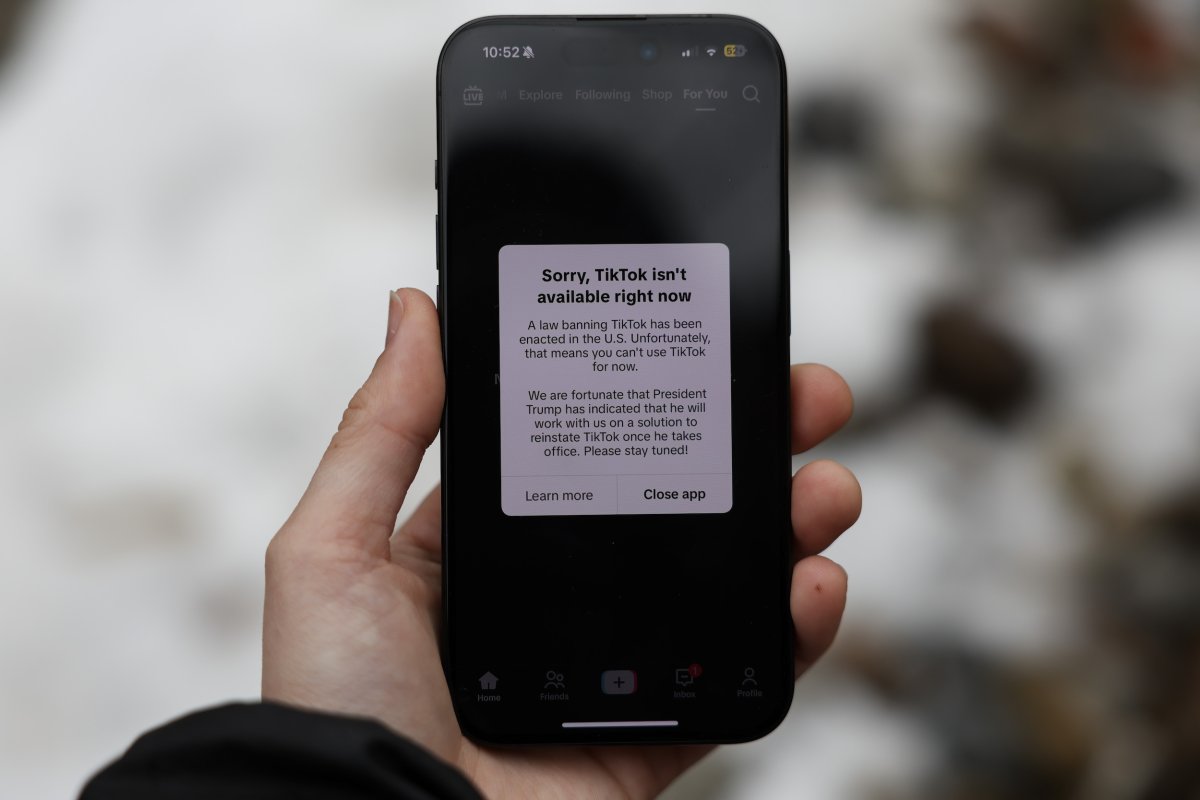A unanimous Supreme Court last week upheld the Protecting Americans from Foreign Adversary Controlled Applications Act's constitutionality as applied to TikTok and ByteDance. The Court found that the law targets TikTok's corporate structure (not its speech) and that its intention is to prevent foreign adversaries, in this case China, from accessing very intimate data on TikTok's 170 million users.
But, even before the Court could draft its opinion, droves of self-described "TikTok refugees" migrated over to other Chinese apps, specifically Lemon8 and RedNote.
Let's start with the former. Lemon8 is a rough knockoff of the American lifestyle app Pinterest. Unfortunately for new Lemon8 adopters, the same law American users are attempting to evade covers Lemon8, too. Yep, the law defines a "foreign adversary controlled app" as any mobile app operated, directly or indirectly, by ByteDance or a subsidiary. Lemon8, like TikTok, is owned by ByteDance. Thus, ByteDance must divest out of Lemon8 or sustain a nationwide ban.
So it can't be a refuge for displaced TikTok users.
RedNote is a more peculiar case. Seemingly coming out of nowhere, RedNote added more than 700,000 new users in just two days and is now the most popular free app on both Apple and Google's app stores.
But what is it?
RedNote, or Xiaohongshu, is another Chinese social media app. Of note, there is no international version of the app; only the Chinese version. Indeed, the app's terms of service are written in Mandarin and it is still predominately used by Chinese users.
So how did American users come by it?
According to a marketing campaign brief, RedNote saw TikTok's precarious legal situation as a lucrative opportunity. It began recruiting TikTok influencers once it became clear that a ban was imminent. The company solicited the help of Solare Global, a New York City-based marketing agency, to "pitch" TikTok creators "on making sponsored posts for RedNote" on TikTok.
But, RedNote, too, is a problematic choice as a digital sanctuary.

TikTok refugees migrating to RedNote in the name of "free speech" are in for a rude awakening. Let's start with XiaoHongShu's "community guidelines." The guidelines say "all content posted should...practice core socialist values" consistent with those "promoted by the Chinese government." Posts must also "spread the correct views on history, nationality, state, and culture" and "promote the excellent traditional culture of the Chinese nation." It prohibits any post that "subverts state power, or undermines national unity."
This likely means that any acknowledgement of Tibet, Tiananmen Square, the Uyghur genocide, or even free speech violates these terms. Repercussions for violating these terms are severe and include everything from removing content to a suspension or ban from the app. The app has already banned some of its new American adopters for violating these terms and stated that it feels "unprepared" to handle a high influx of pro-American ideas on their platform.
Ironic protests aside, can RedNote legally serve as a permanent home for TikTok refugees? Likely not.
What RedNote has going for it over Lemon8 is that it's unclear whether it has any connection to ByteDance or TikTok. But that's only a slight advantage, since the law allows the president to identify other apps as being controlled by a foreign adversary and RedNote's national security implications are on par with TikTok's.
To start, the law defines as "foreign adversaries" the governments of China, Russia, North Korea, and Iran. RedNote is owned and operated by Xingyin Information Technology, which is a Chinese company. So, the first element is clearly met, even more directly than TikTok—which has a Singaporean corporate ownership.
The next question is whether the app is controlled by the Chinese government. The app's guidelines say outright that it's subject to Chinese law, which is the same legal basis Congress used to demonstrate that China controlled TikTok and ByteDance. As the Supreme Court said: "ByteDance Ltd. is subject to Chinese laws that require it to 'assist or cooperate' with the Chinese government's 'intelligence work' and to ensure that the Chinese government has 'the power to access and control private data' the company holds."
RedNote is not only a dead ringer for ByteDance in that respect, but it's also evident that it collects similar types of personal data as TikTok. RedNote collects "personal data, including location, browsing activity, and device-specific information like IP addresses" that the Chinese government can coerce the app to legally share with it, just like it can with ByteDance.
Worse for RedNote's legal posture is that the more American users it maintains, the more likely it is to become a national security threat. Given all of this, it's bizarre that Apple—a company that describes privacy as a human right—has RedNote on its app store at all.
Either way, neither one of these options seems like a viable alternative for the Chinese government to skirt the law's enforcement against TikTok, especially with the Supreme Court stripping its First Amendment defense. Even though President Donald Trump delayed enforcement for 75 days, displaced TikTokers only hope truly lies with the president's ability to get ByteDance to lawfully divest.
Joel Thayer is president of the Digital Progress Institute and an attorney based in Washington, D.C.
The views expressed in this article are the writer's own.




















 English (US) ·
English (US) ·